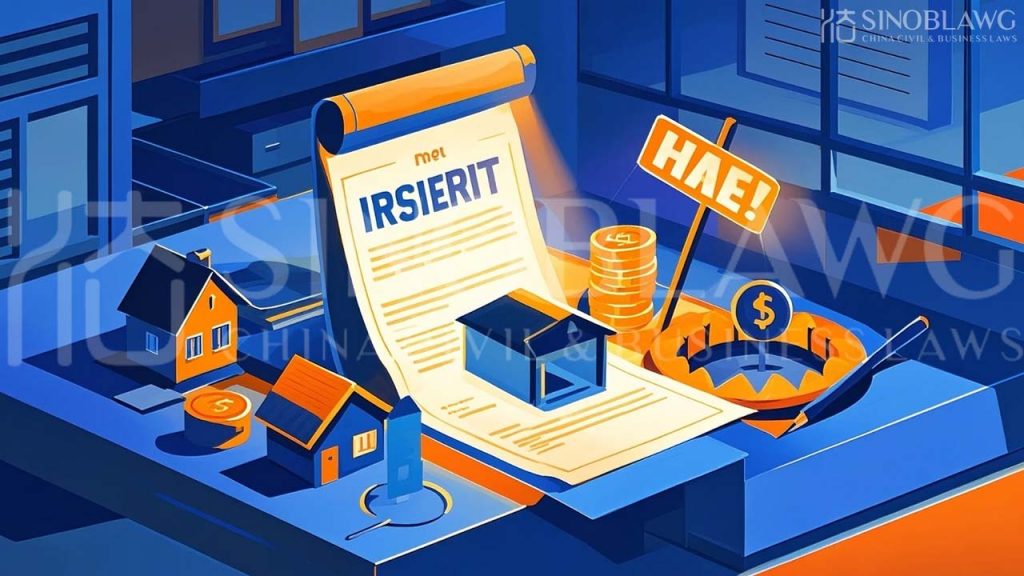It is no longer anything fresh for a foreigner to have assets or properties in China. The foreigner can be either real foreign individual without China root or overseas Chinese or naturalized Chinese. So when those people set up trusts in their residing countries (outside of China) and wish to place their China properties (either real properties or shares) in the trust, then problems can arise if the advisors to the settlors are not familiar with China laws that may have an impact on the setup and running of the trusts.
To keep the post focused, I am going to talk about the legal implications on the choice of trustees of testamentary trusts that comprise real properties (indeed, the following will be true of corporate shares) in China.
I. the Legal Environment in China Concerning Trusts and Inheritance
Does China have trust law? Many may wonder about it. Yes, China has it trust law since 2001. However China Trust Law is seldom utilized in private family estate planning despite the fact that China trust law does allow the setup of civil trusts that are supposed to mimic the trust settlements in UK or USA. Indeed, the China trust law specifically mandates the creation of trust through wills provided that the making of the will shall be in compliance with China Inheritance Law.
While China trust law allows the creation of private express trusts, in practice, except for money assets, real properties and other properties that are the subject matters of registration system are never head of being put into any civil trusts. Mainly because China Trust Law requires that trusts settled on such properties requiring registration systems shall be registered in order to be effective. However, China has not issues trust registration rules, so no trusts involving real estate or corporate shares have ever been publicly recognized.
On the other hand, China Inheritance Law has never been updated since its debut back in 1985, a time when the concept of trust may only exist in the minds of a few legal scholars.
As you may have noticed through posts on this blog, for example,
how foreigners inherit estates in China,
tax issues of inheriting real estate in China,
multiple heirs inherit one piece of estate property in China,
make a will disposing of properties in China,
Inheritance of estates in China: you may have to resort to courts, that:
(1) inheritance or succession of estates often means the outright gift of such estates to the legal heirs or designated beneficiaries of wills or in other words, the title of the estates shall be transferred from the decedent to the heirs or beneficiaries; and
(2) there are basically only three ways of carrying out inheritance in China: (i) all the heirs appear before the real estate authority presenting all required documents related to the inheritance, which means all heirs and interested parties are in agreement and have to fly to China at a scheduled meeting with real estate authority; (ii) the first option is generally not possible for foreign heirs simply due to the distance, the second way is to resort to the help of local notary offices in the place of the situs of the estate properties whereby the notary office will notarize the inheritance right of the heirs, and with the notarisation document, the heirs or beneficiary can update the title of the estate properties; and (iii) go to court failing the first two options.
(3) China has enacted its own version of the Law on the Choice of Conflict of Laws, and its Article 17 provides: the parties may agree on the applicable laws to the trusts, and failing such agreement, the laws of the place of the situs of the trust properties or the laws of the place where the trust relationship is created shall govern.
By the way, China has not enacted estate tax so far, so all estates can pass to the heirs or beneficiaries without incurring big loss to government.
II. Choice of the Trustees and Legal Implications
In the common law jurisdictions where trusts are widely used, trustees can be anyone who is trusted by the settlor or trustor, and can be institutional organizations such as trust companies and banks. The testamentary trusts I have witnessed in cases where I helped foreign clients in completing inheritance of estates in China most have trustees who are family members and among the legal heirs or beneficiaries.
So far as China properties are concerned in the trusts set up outside of China, what are the implications of choice of law?
(1) if the trustee is one of the heirs or beneficiaries in the will, then we may help the client complete the inheritance of the properties by transferring the title to the trustee-heir or trustee beneficiary, and this can be done without going to China court;
(2) if you choose a trustee who is not an heir or beneficiary, say he or she is a lawyer or just a friend of the deceased settlor, then with the trust in the picture, the inheritance cannot be done by way of inheritance right notarisation at local notary office, because China notary offices won’t entertain such requests for reason of not knowing the foreign trust laws, not to mention the first option whereby officials at the real estate authorities generally know nothing about foreign laws. So the only option is to do it through China courts whereby courts may apply the foreign trust laws and allow the trustee to take up the title of the estate properties.
The trouble does not stop there. The non-heir trustee may be able to transfer the title to his or her name, but he or she may have to pay taxes, at least the 3% deed tax based on the market value of the real properties, which tax can otherwise be exempted if the trustee is a legal heir (namely, parents, spouse and children). It could be possible that tax authorities may be ready to impose other taxes as if the transfer were a normal sale.
(3) if you choose a trustee that is a trust company or bank, then the same issue as described above will arise. Furthermore, when the trustee needs to dispose of the estate properties through sale, more taxes will be imposed on the sale which will be a disaster on the beneficiaries.
So the choice of trustee can be a critical point to consider when setting up a trust that covers properties in China. I welcome any inquiry and potential cooperation in connection with setting up trusts for clients that have substantial assets and properties in China.







Comments